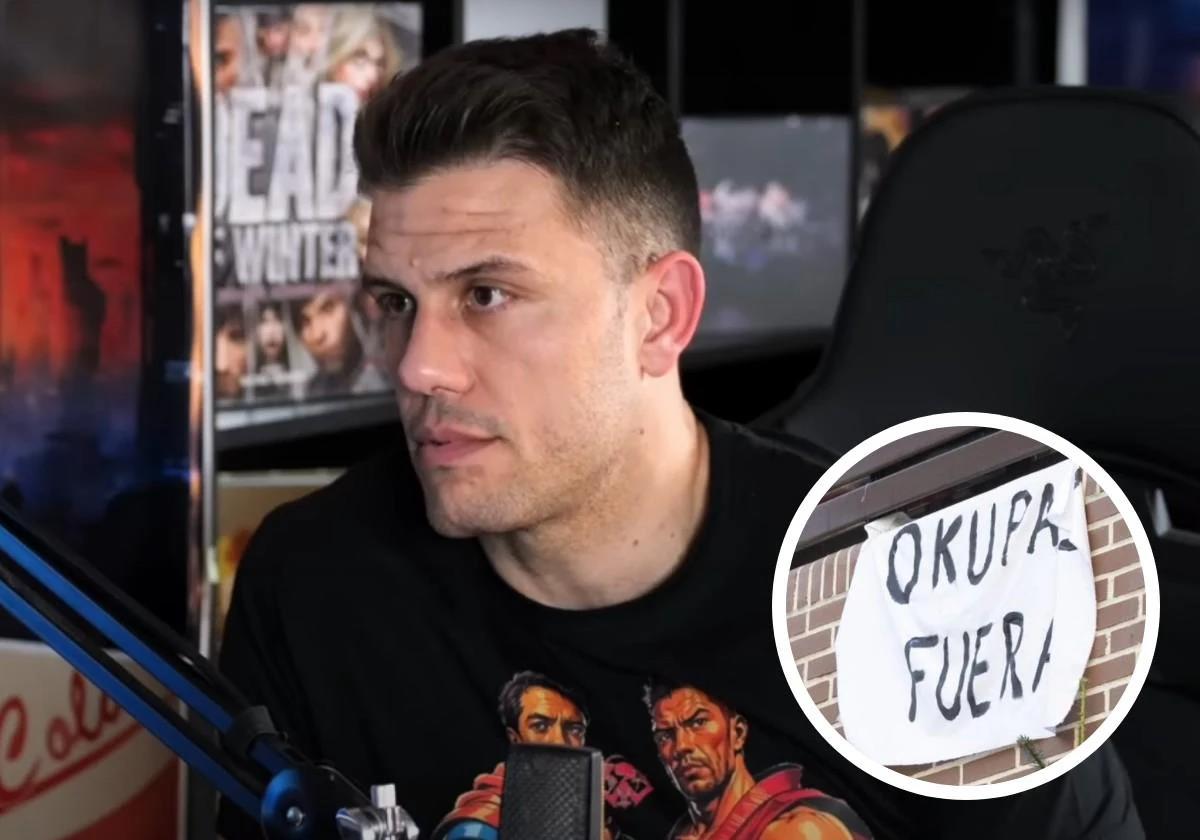National Police officer in Spain explains how squatters choose where they target so as not to fall foul of the law
The serving officer has revealed what these people do so that they cannot be arrested and evicted when they illegally enter a property to live there
Marina Ortiz
Madrid
Tuesday, 20 August 2024, 18:41
August has already passed its halfway point and that means that summer is slowly coming to an end for many people. Although some people still have holidays to take, many others are returning to their routine after a period of rest. During this time a fear some people have about their private property is often awakened: illegal squatting.
This reality in Spain means many homeowners are afraid that if they leave their home for a few days it will be squatted, or in other cases they are worried their holiday home, which they do not usually live in, will be squatted when they leave it until their next visit.
The well-known content creator Jordi Wild and Eduardo Riego of Spain's National Police force, talked about this hot topic in the interview section of his YouTube channel. Among other things, they talked about how people who break into houses that are not theirs move in in order to inhabit them and the methods they use to try to avoid falling foul of the law.
Wild started the interview: "There are people who are afraid that if they go away for a weekend or a week's holiday, their property will be broken into and their house will be occupied. So, to what extent is that the case? How does the squatting issue work? If I have my house and they break in and I don't have an alarm and I come back a week later, have I lost my house?"
To which Riego responded: "No... It's not like that. If it is your house and it is your home, that is to say, you have privacy there, if the person enters, they are committing a crime and they can be removed. Squatters are usually not stupid and what they do is break into houses that belong to a bank or finance company, that are not classed as a private dwelling".
"There are some cases of renters who maybe simply stop paying the monthly rent and end up being a squatter, but they are another type of squatter. However, the squatters who try to enter houses that do not constitute a dwelling because they know that if they do not constitute a dwelling it is a minor offence and therefore they cannot be arrested in principle," the police officer revealed.
"If it is your house and it is your dwelling, that is to say, you have a privacy there, if a person enters, they are committing a crime and can be removed"
Eduardo Riego
National Police
In response to this explanation, the interviewer asked whether a second or third residence is classed as a dwelling or not, with the state security officer replying it would also be included as such. He went on to specify a case in which someone realised after seven months that their property had been squatted in, for example, a second residence in which they do not usually live. Here, the police officer said that this would be a different case as the people who have squatted the house have also established a home there, so evicting them would be a violation of their privacy. "We would have to take some steps and it wouldn't be as easy as kicking the door in and taking them out," Riego said.
Personal view on squatting in Spain
According to the personal opinion of the police officer, which Wild asked about: "There is something wrong when private companies have to evict squatters. The authorities have enough tools, there are enough police officers, in the end it's a matter of public crimes so public companies can take care of this and the police can do the same as a private company. When there are private companies that do well and do the work that the police sometimes cannot do, something is not right". He added that, in his opinion, these "legal loopholes" must be looked at and solutions sought. "You look at it and it's a bit of an injustice," Riego said.
Riego also pointed out there are not only people who squat out of necessity, but that there is a "big business" of squatters who sell keys and pay them to go from one place to another, describing it as a "black economy" and a problem he believes can be solved by the state, even if it is complicated.
